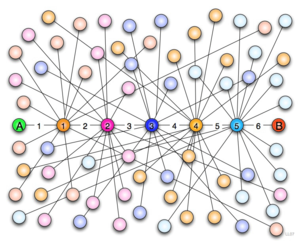
Are you one of the lucky ones with Spring Break in the offing?
Have you been thinking and hoping and waiting for Spring Break? Finally, you say, I’ll make some headway on my dissertation or book.
Visualize how it will work when you have none of the usual demands that take your time and distract you during each day.
It may be a bit of a challenge to be organized, to guard your time, to find the balance between thinking you have to research this and write that. Feel a little scary? Are you starting to put the stressors in place just at the moment when the usual demands may let go?
What would make for a more relaxing and a less stressful writing?
What are the fears?
Just at the time when you see some daylight, here come the fears. Try this: See yourself as a cartoon character and imagine a little balloon above the character’s head. Put those scary thoughts up in that balloon—the fears that give you that debilitating tightness in your chest. Every time one of those thoughts or pains come up, think of the words or fears and mentally write those words in the balloon.
You’re bigger than those words-in-the-balloon. Put those fears in their place.
Sail on, Silver Girl
A client once said that sometimes “it feels like I’m strong and sailing forward like ‘Sail on, Silver girl; Sail on by’ in that Simon and Garfunkel song,” but then everything just piles on.
Guard your Spring Break. People may know where to find you and start making requests that are hard to ignore.
For your Spring Break, find quiet moments, with no stressors where you can sail on.
That Hotel Thing
Maybe it’s time for that Hotel Thing. If you need solitude and the boundaries that seeming-to be-out-of- town will give you, why not find a good deal for 2 nights in a hotel? Bring snacks, but be sure you can get room service for that evening when you’re in flow, but you’re hungry for something more than Trail Mix. That’s no time to tramp around, trying to find a cheap eatery.
Bring your dissertation coach’s phone number, but leave all of your other phone numbers at home.
Give yourself an evening to settle in and to tame your surroundings. Feel at ease and comfortable with starting gradually.
Ah, just writing about solitude and co-existing with no other living creature allows me to relax and breathe deeply.
A Retreat with a Friend
Some writers combine a writer’s retreat with reconnecting with friends or being with like-minded people. Consider renting a beach house or going to a Bed and Breakfast with a friend or two and setting up compatible writing schedules. Having someone to walk with before dinner sounds pleasant.
Accountability
My dissertation clients primarily hire me to provide accountability.
Why not combine your plans to write during Spring Break with Dissertation Boot Camp/Writer’s Retreat? Boot Camp, or at least my version, includes 3 coaching calls over two weeks and short, daily check-in’s via email. And if a client is having a week-end retreat at a hotel or in another hidden location, I’m glad to schedule a coaching call on the week-end or at some random time to help get the writing off the ground and keep it going.
Being accountable to one other person who isn’t your friend, your mother, or your spouse can be very important. No drama, no complications. A similar dynamic is probably at work in organizations like Weight Watchers.
If results count, find a way to include accountability during your Spring Break.
If you have been longing for some time alone, with no appointments or scheduled must-do’s, go ahead and take some time off. If you are one of the lucky ones with Spring Break, seize the opportunity and dedicate it to your writing. I would be glad to help you create a productive and relaxed writer’s retreat.
And if Spring Break isn’t in sight, take a long weekend. Remove yourself from everyday life and give me a call.
I’m on your side.
All good wishes,
Nancy
Nancy Whichard, Ph.D., PCC
Your International Dissertation Coach and Academic Career Coach
http://www.dissertationbootcamp.net
http://www.smarttipsforwriters.com
nancy @ nancywhichard.com
Read Full Post »



